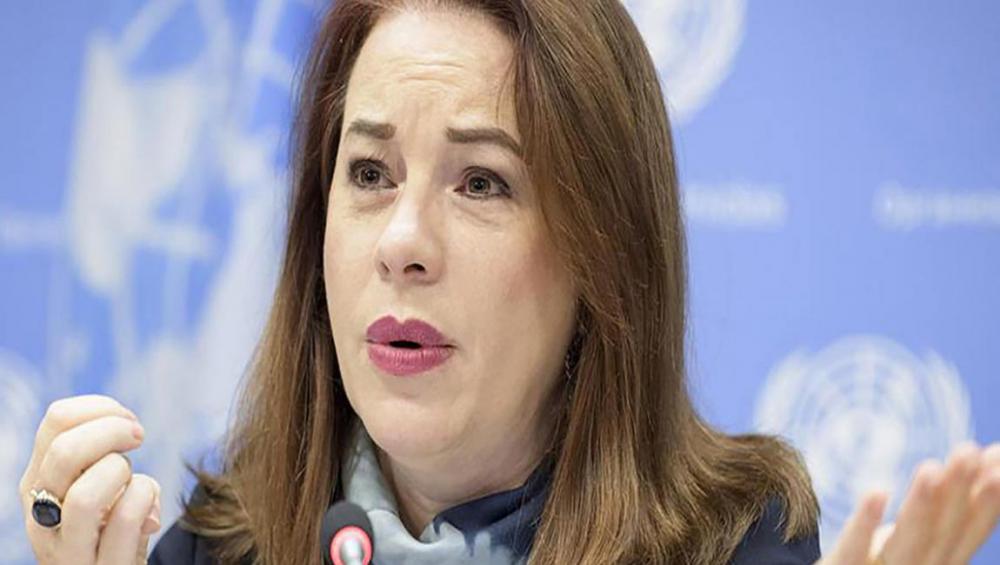Just Earth News | @JustEarthNews | 18 Jan 2019, 05:13 pm Print

New York: Revitalizing the United Nations to “strengthen a multilateral rule-based world order” tops a list of priorities the General Assembly President told UN Member States on Tuesday.
Convinced that “revitalizing the UN and advancing multilateralism go hand-in-hand”, Assembly President Maria Fernanda Espinosa Garces said that she was engaging with world leaders in New York and abroad, “to promote this objective”.
She also vowed to work on revitalizing the General Assembly, as well as on reforming the UN Security Council and aligning the UN’s objectives to the 2030 Agenda for Sustainable Development.
Calling the 2030 Agenda “a cornerstone of the success of multilateralism”, she stressed the importance of building greater public understanding and support for it.
Her second priority was on implementing two new global accords on refugees and migrants, for which she had appointed two co-facilitators to consult with Member States on arrangements for the International Migration Review Forums – the primary intergovernmental platform for States to discuss implementing and share progress on the Global Compact.
“I will also continue raising awareness about the importance of an informed debate on international migration, which is based on facts and figures, to help Member States develop their own policies and support the implementation of Global Compact for Migration” she stated.
“I am committed to strive towards gender parity within the General Assembly and gender equality in its outcomes, starting with my Office where gender equality is a reality”, she emphasized, noting her newly established Group of Gender Equality Leaders.As a Gender Champion, Espinosa’s third priority focuses on gender equality and women’s empowerment.
Fourth, under the priority related to the creation of decent work opportunities, she spotlighted the need to build on the momentum created around the review of Sustainable Development Goal 8 (SDG 8) in the High-Level Political Forum on Sustainable Development (HLPF) under the auspices of the UN Economic and Social Council (ECOSOC) in July as well as the commemoration of the 100th anniversary of the International Labour Organization (ILO).
Protecting the environment is Espinosa’s fifth priority.
Nearing the first milestones of the 2030 Agenda, she committed to encouraging all participants to work collectively on climate and environmental action, as “more needs to be done to prevent dangerous levels of global warming.”
“We need to see climate change response as an opportunity to set a course for a better future for human beings and towards a greener, cleaner and more sustainable world”, she maintained, particularly as it “is accelerating faster than our efforts to address it”.
On plastic pollution, she asked for partners in “walking the talk” by reducing single use plastics within missions and at UN facilities.
Under the rights of persons with disabilities, her sixth priority, she said that a Steering Committee on Accessibility at the UN had been launched in December on the eve of the International Day for Persons with Disabilities.
Moreover, she plans to launch the campaign for the Universal Ratification of the Convention on the Rights of Persons with Disabilities this month and host a High-Level Event on Persons with Disabilities in June.
For her final priorities, peace and security, the Assembly President said she would seize on, or take advantage of, all existing mandates and events” to promote issues related to conflict prevention, peacebuilding and sustaining peace” to build more “peaceful and resilient societies.”
Looking back
Espinosa outlined the work the Assembly had already achieved since she took office in September, beginning with the “unprecedented” number of world leaders at the 2018 general debate, which sent “a strong message” in support of multilateralism and the Organization.
She noted that in Marrakech, “we adopted the Global Compact for Safe, Orderly and Regular Migration”, and also the “so-called rulebook” for the Paris Agreement at the Climate Conference in Poland.
Among others, she: conducted a one-day High-Level Meeting on Middle-Income Countries that yielded concrete recommendations to address gaps in implementing the 2030 Agenda; launched a series of Morning Dialogues with Ambassadors on thematic issues challenging the Organization; and appointed 28 co-facilitators and co-chairs, almost 60 per cent of whom are women.
- Ali Khamenei (1939–2026): Iran’s Supreme Leader who ruled with an iron grip
- Trump signs 10% global tariff, says it takes effect ‘almost immediately’
- BJP wins a seat in Bangladesh — But not the one you think!
- Meet Shabana Mahmood: Could she take over as UK’s first Pakistani-origin Muslim PM?
- Dalai Lama's Office breaks silence on Epstein claims





-1763561110.jpg)
